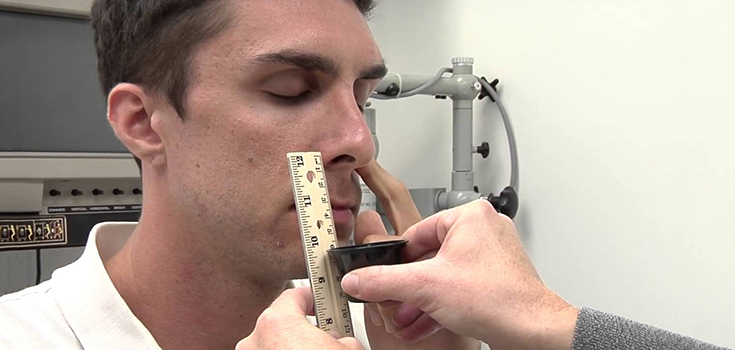Noninvasive Smell Test may Detect Early Alzheimer’s
Noninvasive Smell Test may Detect Early Alzheimer’s
Forget spinal taps and PET scans
Doctors may one day be able to test people for Alzheimer’s disease by testing their ability to identify familiar scents , like smoke, coffee, and raspberry.
In 2 studies released at an international Alzheimer’s meetingJuly 26, people who were in their 60s and older took a standard odor test. In both cases, individuals who did poorly on the tests were more likely to already have or go on to develop memory and thinking problems .
Dr. William Kreisl, a neurologist at Columbia University, where both studies were conducted, said:
“The whole idea is to create tests that a general clinician can use in an office setting.”
Currently, there is no real treatment for Alzheimer’s. Some promising treatments are on the horizon, many of which hinge on catching the form of dementia early. However, catching Alzheimer’s in its early stages has been notoriously difficult .
Read: Memory Loss from Alzheimer’s may be Reversible
The usual tests to detect Alzheimer’s are also costly and difficult . They include PET scans, which can spot sticky plaques in the brain, and invasive and painful spinal taps that measure the levels of certain proteins in spinal fluid.
Food Doesn’t Taste as Good
The concept of a smell test came from something doctors had noticed in Alzheimer’s patients for years. Kreisl explained that patients will often complain that food doesn’t taste as good , the reason often being that these patients have lost the ability to smell what they eat .
According to Kreisl, this makes perfect sense, because odor signals from the nose must be processed in areas of the brain that are among the first to be impacted by Alzheimer’s disease.
Kreisl and his colleagues studied 84 people in their 60s and 70s, including 58 with the type of memory problems that imply Alzheimer’s. The participants took a test called the University of Pennsylvania Smell Identification Test, or UPSIT. Kreisl explained:
“It’s basically a set of cards. And each card has a little scratch and sniff test on it.”
The team of researchers discovered that people who had trouble identifying odors were 3 times more likely than other people to have memory problems. Additionally, Kreisl said, the odor test “was able to predict memory decline in older adults about as well as the PET scan or spinal tap .”
In the 2nd study by another research team from Columbia, 397 people whose average age was 80 at the start of the study were followed for more than 4 years. Their scores on the odor test predicted, fairly accurately, which people would go on to develop dementia, the team found.
But the Test isn’t Perfect
However, the smell test is imperfect. Other degenerative brain diseases, such as Parkinson’s, can also affect odor detention. Smoking, certain head injuries, and even normal aging can impact one’s ability to smell. [1]
Dr. David Knopman, a neurologist at the Mayo Clinic, said:
“The problem is that the accuracy of odor identification is just not good enough to be a standalone test.”
With all this in mind, scientists are looking at other “biomarkers” of Alzheimer’s, including some changes that affect the eyes .
Maria Carrillo, chief science officer of the Alzheimer’s Association, said:
“The eye has nerves that are very closely linked to the brain.”
Carrillo explained that changes in those nerves can help detect early Alzheimer’s.
Detecting Alzheimer’s Through the Eyes
In new research, Dr. Fang Ko of the UCL Institute of Ophthalmology in London, explored the thickness of the retinal nerve fiber layer to find out if it could accurately predict memory loss and other types of mental decline. Thickness of this layer is known to decrease with age.
Ko and his fellow researchers conducted eye tests, physical exams, cognitive tests, and surveys of 33,068 participants. They uncovered a significant link between thinner layers and poor cognition. Participants with a low test score on any 1 cognitive test were found to have thinner retinal nerve fibers.
Other tests have revealed links between vision problems and memory loss. [2]
Unfortunately, right now, these tests amount to little, because those promising treatments I mentioned earlier are still a way’s off.
“What we really need is to be able to use these screening tools at the same time that we have a therapeutic.” [1]
| About Julie Fidler: | |
| Julie Fidler is a freelance writer, legal blogger, and the author of Adventures in Holy Matrimony: For Better or the Absolute Worst. She lives in Pennsylvania with her husband and two ridiculously spoiled cats. She occasionally pontificates onher blog. | |
Other Popular Stories:

Post a Comment